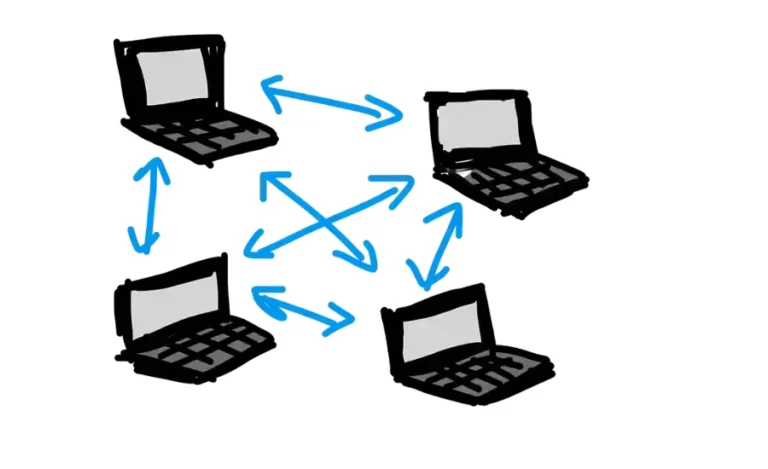5132865914: Identifying and Protecting Yourself from Scams
Numerous people have experienced stress and anxiety in addition to large money losses as a result of the rise in phone scams. In order to create an impression of reliability, scammers frequently use local area codes—such as Cincinnati’s 513 area code—to falsify their identities. People are more likely to answer the phone if they think the caller is someone they know or someone local if they are tricked by this.
Numerous reports have been made about numbers connected to scams, such as the one stated above. Callers frequently use threatening or urgent rhetoric to put pressure on their targets. Phishing for personal information, posing as representatives of government authorities, or even posing as tech help are common strategies. Sadly, a lot of people fall victim to these scams, which can lead to financial fraud or identity theft.
It is essential for self-defense to comprehend how con artists function. Usually, they use panic and a sense of haste to force victims to reveal private information or make hurried payments. Being aware of the telltale symptoms of a scam call is an essential first step in protecting yourself. Preserve your composure and don’t provide any personal information if you get a strange call from a number linked to scams in the past.
We’ll talk about how to spot phone scams in this blog post, especially the ones that use recognized phony numbers. We’ll also look at programs like Robokiller, which are intended to prevent these bothersome calls and improve the security of your phone. You may drastically lower your chances of falling victim to a scam by learning how to avoid them.
Identifying Scam Calls: Understanding the Risks of the (5132865914) Area Code

The phone Number in question has garnered numerous reports from users identifying it as a scam. It is often linked to threatening calls and fraudulent claims, with scammers impersonating legitimate organizations, including government agencies and technology companies.
What makes this number particularly concerning is the aggressive tactics employed during the calls. Many individuals have expressed feelings of intimidation and pressure to disclose personal information. These calls frequently incorporate threats of legal action or account suspension, which are typical strategies used by scammers to instill fear.
In order to give the recipient a feeling of familiarity, scammers also frequently use local area codes, such the 513 area code. “Neighbor spoofing” is the term for this strategy, which greatly increases the chance that the victim would answer the phone. Regretfully, a lot of gullible people find success with this misleading tactic.
To safeguard oneself from con artists, one must be aware of these strategies. It is imperative that you exercise caution and withhold any personal information if you receive a call from this number or one similar to it. The first line of defense for your personal data and financial stability is education about these scams.
Understanding the Tactics of Scammers Using (5132865914) Area Code: User Reports and Experiences
On numerous forums and scam-reporting websites, consumers have discussed their experiences with this same phone number. Numerous people have reported getting calls from someone posing as the IRS, demanding payment right now and alleging they owe money. Others have reported receiving calls purporting to be from tech support, with the goal of breaking into their machines.
The scammers’ goal in these situations is to make their victims feel frightened and pressured. People have been threatened, for example, with having their bank accounts frozen if they don’t take immediate action. These kinds of efforts can be very convincing, especially to people who might not be familiar with popular scam techniques.
Fortunately, many people have taken the initiative to share their stories, helping to warn others about these deceptive practices. Resources like Robokiller play a crucial role in collecting and disseminating these reports, alerting the public to the ongoing threat posed by such scams. By raising awareness, individuals can better protect themselves and others from falling victim to these fraudulent schemes.
The Dangers of Engaging with Scammers: Risks and Consequences
Engaging with scammers from this particular number can result in severe repercussions. One of the most significant threats is identity theft, where fraudsters may steal personal information, including Social Security numbers. This type of breach can lead to unauthorized financial transactions, loans taken out in the victim’s name, or even criminal activities that impact the victim’s reputation and finances.
Another critical risk is financial fraud.Many people have become victims of scams in which they are forced to submit money via wire transfers or buy gift cards in order to “pay” for the resolution of fictitious legal difficulties. Recovering the money after it has been transmitted is very difficult, if not impossible.
In addition to the financial costs, victims frequently endure psychological hardship. Such exchanges can be extremely stressful and frightening. As a result, it’s critical to stay away from these con artists and report any strange numbers to the police or anti-scam groups like Robokiller. People can protect themselves and support a larger effort to stop these fraudulent operations by following these measures.
Recognizing and Responding to Scam Calls: Essential Tips for Protection 5132865914

Scam calls often exhibit distinct characteristics that can help you identify them. One significant warning sign is when the caller insists on immediate action or payment. For instance, they may threaten legal repercussions if you do not respond promptly.
Another red flag arises when callers request personal or financial information, such as Social Security numbers or banking details. Reputable organizations do not ask for sensitive information over the phone, so be wary of any such requests from unfamiliar numbers.
Scammers frequently employ high-pressure tactics to evoke anxiety or fear. If a caller claims there’s an urgent situation—like a lawsuit or a frozen account—it’s highly likely that you are dealing with a scam.
What to Do When You Receive a Suspicious Call
If you find yourself on the receiving end of a call from a known scam number or any suspicious number, the best course of action is to refrain from answering. If the call goes to voicemail, listen carefully to the message before deciding whether to call back. Scam messages are often vague or crafted to provoke panic.
Should you answer the call, it’s crucial not to divulge any personal information. If the caller begins to make demands or threats, hang up immediately. Engaging with them can lead to manipulation, as scammers are skilled at exploiting emotions.
Consider utilizing reverse phone lookup tools to verify the legitimacy of the number. This can provide confirmation if the number has been flagged as a scam.
Reporting Scam Calls and Preventing Future Incidents
Once you identify a scam call, it is essential to report it to the Federal Trade Commission (FTC) or your local authorities. Reporting these incidents can help protect others from falling victim to similar scams.
To reduce the likelihood of future scam calls, consider using applications like Robokiller, which automatically identify and block known scam numbers. Most smartphones also include features for manually blocking numbers, offering additional security.
By reporting scam numbers and employing blocking tools, you can take effective steps to protect yourself from future scams and stay informed.
Read More: Navigating the 210-216-1521 Scam
Enhancing Phone Security: Effective Apps and Strategies to Block Scam Calls

In today’s digital age, numerous applications are available to help users block scam calls and identify suspicious numbers. Among the most widely used options are Robokiller, Truecaller, and Hiya. These applications utilize extensive databases of known scam numbers, which are continuously updated, allowing them to automatically flag and block these calls before they reach your phone.
When a scammer attempts to call, these apps can intervene preemptively, saving you time and protecting you from potential fraud. Additionally, users can report new scam numbers that may not yet be included in the database, contributing to a communal effort to keep others safe from scams. 5132865914
How Robokiller Excels in Blocking Scam Calls
Robokiller stands out as one of the most efficient apps for preventing scam calls. Not only does it block known scam numbers, but it also answers the calls with a prerecorded message, effectively wasting the scammers’ time and resources. This unique approach can significantly reduce the number of unwanted calls you receive.
Setting up Robokiller is straightforward. After installation, the app manages call blocking automatically and screens incoming calls. Users can access a list of blocked numbers and receive detailed reports on each one, enhancing awareness about potential threats.
Furthermore, Robokiller features a community aspect where users share their experiences with various scam numbers. This collaboration helps the app stay informed about emerging scam trends and updates its database accordingly.
Additional Tools for Enhanced Phone Security
In addition to apps like Robokiller, several mobile carriers offer built-in services designed to block spam calls. For instance, AT&T provides Call Protect, while Verizon features Call Filter. These services can effectively identify and prevent scam numbers from reaching you.
Smartphones also include built-in functionalities that allow users to manually block specific numbers. By adding known scam numbers to your blocked list, you can further minimize the risk of receiving unwanted calls in the future.
For those seeking additional security, using a Virtual Private Network (VPN) can help protect your device from hackers. While a VPN does not directly block scam calls, it enhances the overall security of your data and online activities.
By leveraging these apps and strategies, you can significantly improve your phone security and reduce the likelihood of falling victim to scam calls.
Final Words
The phone number 5132865914 has garnered significant attention as a commonly reported scam number. Users have described a variety of deceptive tactics employed by callers using this number, often impersonating trusted organizations to instill fear and urgency. The prevalence of aggressive calls, whether claiming to be from government agencies or tech support, highlights the need for vigilance and awareness.
To protect yourself from potential scams, it’s essential to recognize the warning signs, such as demands for immediate payment or requests for sensitive personal information. If you encounter a suspicious call, do not engage, and consider reporting the number to authorities or using call-blocking apps like Robokiller.
Staying informed and proactive is crucial in safeguarding your personal information and financial security from scammers.
For More Information Check It Out Blog Blower






